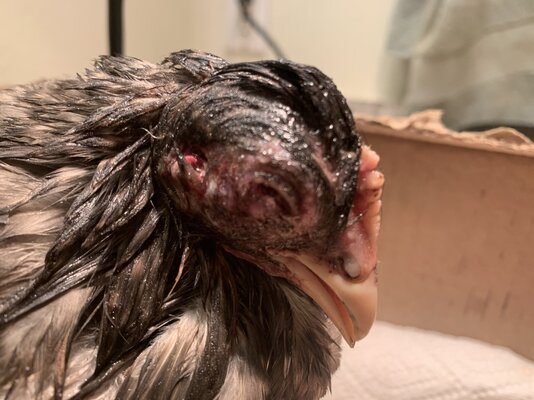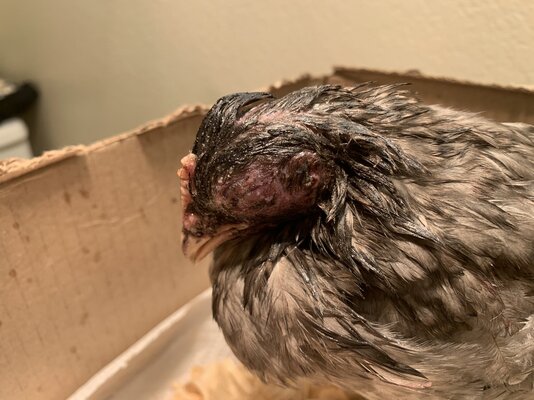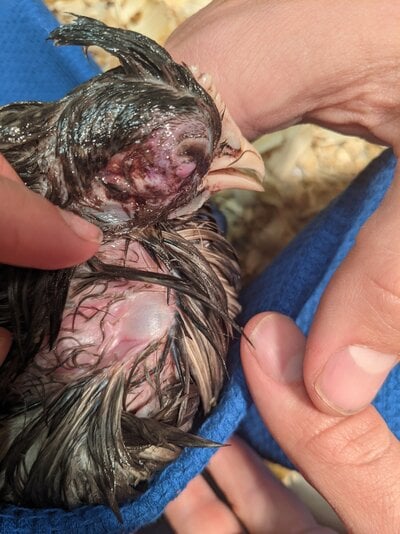Derek Sawyer
Hatching
- May 27, 2022
- 3
- 0
- 9
My five week old sapphire gem was injured by a wild bird, she still alive and moving around and chirping when we move her. I have never had traumatic injury on a chicken before and I’m quickly searching basic first aid. I’m willing to try to help her but can anyone tell me if this injury seems too severe to come back from??? I’ve been a chicken keeper for 2 years and have never lost a chicken, I don’t know when is the right time to let her go or how to do it. Any advice on first aid also appreciated








